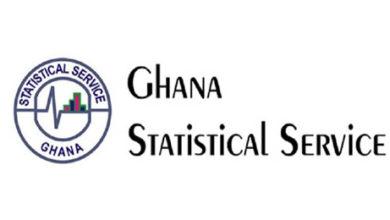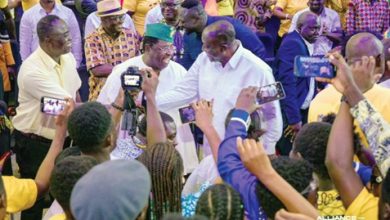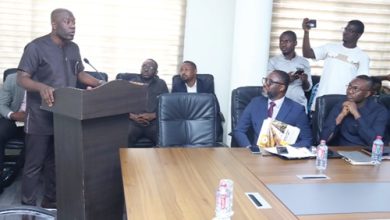James Quayson appeals ruling annulling his election as MP

The National Democratic Congress (NDC) candidate for Assin North in the 2020 parliamentary election, Mr James Gyakye Quayson, whose election as a Member of Parliament (MP) was annulled by a Cape Coast High Court, has appealed the ruling of the court.
In a petition filed at the Court of Appeal in Cape Coast yesterday, Mr Quayson is asking the court to quash the decision of the Cape Coast High Court.
It is the case of the MP that the trial judge erred in nullifying the parliamentary election in the constituency.
He said the nullification and the further order that the Electoral Commission should conduct fresh elections in the constituency lacked any constitutional and/or legal basis.
“The judgment is wholly against the weight of the evidence,” he stated.
Reliefs
Reliefs being sought by the appellant from the Court of Appeal include a declaration that the judgment of the High Court, Cape Coast, chaired by Justice Kwasi Boakye, on July 28, 2021 was void for having been issued out of jurisdiction, and an order setting aside the judgment of the High Court and another order setting aside the award of costs against him.
Grounds of appeal
The appellant pointed out the particulars of error of law contained in the ruling of the trial judge.
For instance, he said Section 1(2) of the Evidence Act 323 makes the determination of foreign law (in this case, Canadian law pertaining to owing allegiance to Canada) a question of fact to be proved by leading evidence.
“The High Court did not allow for proof of foreign law in the determination of the issue of whether or not the appellant owed allegiance to a country other than Ghana,” he said.
Citing a Supreme Court ruling in The Republic v. High Court (Commercial Division) Accra, the appellant said per Article 129(3) of the 1992 Constitution, all courts were bound to follow decisions of the Supreme Court on questions of law.
“In the above-cited case, the Supreme Court ruled that the nomination period extends beyond the nomination day(s) announced by the Electoral Commission,” the appellant said, and added that the High Court erred by limiting its decision to the nomination days.
He stated that the High Court breached Section 20(1)(d) of the Representation of the People Act, 1992, (PNDC Law 284) when purporting to decide that his election as an MP on December 7, 2020 was void.
Furthermore, the appellant argued that Section 20(1)(d) of PNDC Law 284 provides a piece of substantive legislation that fixes the material time of qualification as the time of election, while Regulation 8(1) of the Public Elections Regulations, 2020 (C.I. 127) also provides a piece of subsidiary legislation that reckons the time of nomination as the material time of qualification.
Based on that, he said, “The High Court erred by jettisoning Section 20(1)(d) of PNDC Law 284 in favour of Regulation 8(1) of C.1.127, a piece of subsidiary legislation.”
Again, he said, the High Court erred in law when it refused/failed to proceed to the trial of the issues raised by the pleadings.
The appellant further stated that the decision of the High Court to determine the suit solely on legal arguments, when a matter of foreign law was pleaded, was in breach of the High Court (Civil Procedure) Rules.
“The High Court breached the audi alterem partem rule of natural justice when it determined the petition without allowing for a hearing of the case,” he said.
Interpretation of Constitution
Furthermore, the appellant said the High Court had no jurisdiction to interpret any part of the 1992 Constitution.
“The High Court erred in law and acted out of jurisdiction when it failed to differentiate the issue of whether or not the appellant owed allegiance to another country other than Ghana from the issue of dual citizenship,” the appeal notice stated.
He said while the High Court was under obligation to determine the issue of whether or not he owed allegiance to a country other than Ghana; the court ended up determining the non-issue of whether or not he held dual citizenship at the time of his nomination.
“The High Court erred in law, and acted out of jurisdiction, when it refused and/or failed to refer Article 46 of the 1992 Constitution to the Supreme Court for interpretation in the context of conflicting interpretations,” the appellant said.
Legal team’s position
Commenting on the appeal, a member of the NDC’s legal team, Mr Sammy Gyamfi, said the matter bordered on constitutional interpretation, adding that “per the laws of this country, the High Court judge was bound to refer the matter to the Supreme Court to interpret same, as such issues fall within its exclusive jurisdiction under Article 130 of the 1992 Constitution”.
“We have taken time to go through the 64-page judgement of the trial court and there are issues that we believe fly in the face of justice,” he stated.





